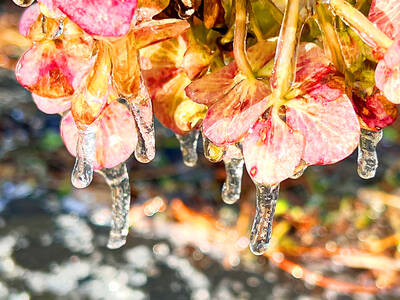The government’s decision last month to further ease a ban on imports of food items from Japanese prefectures that had been implemented due to the 2011 Fukushima Dai-ichi nuclear power plant disaster could help facilitate a bilateral trade deal between the two sides, a diplomat said yesterday.
Fan Chen-kuo (范振國), secretary-general of the Ministry of Foreign Affairs’ Taiwan-Japan Relations Association, made the comment during a ministry briefing when asked about the prospect of Japan and Taiwan signing an economic partnership agreement (EPA).
An EPA would be similar to a free-trade deal aimed at strengthening economic and trade ties.

Photo: Reuters
Taiwan and Japan first launched an economic partnership committee (EPC) in 2014 that was meant to meet annually to discuss economic and trade issues, with the ultimate goal of signing a comprehensive EPA, Fan said.
However, Tokyo suspended the annual meeting after the 2014 meeting because it was unhappy with Taipei’s decision to maintain a ban on imports of food items from five Japanese prefectures affected by the Fukushima disaster, he said.
Japan perceived the ongoing ban on products from Fukushima, Gunma, Chiba, Ibaraki and Tochigi prefectures as a trade barrier and repeatedly called on Taiwan to lift the restrictions.
The annual EPC meeting was not resumed until early 2022, after Taiwan partially lifted the ban on food imports from the five prefectures, Fan said.
The EPC has met annually since then — in Tokyo last year and in Taipei this year.
Fan said Taiwan took another key step on Sept. 25, when it said almost all food items from the five Japanese prefectures would be allowed into the country, except those from the five areas that are banned from being sold in Japan.
Those products could still be imported on the condition that their importers present radiation and origin certificates, Fan said.
Although the Japanese side was not completely satisfied with the certificate requirement according to Fan, Japan’s then-minister of agriculture, forestry and fisheries Tetsushi Sakamoto praised Taipei’s decision.
“We believe this is an optimistic step that will help reconstruction efforts in the disaster areas,” Sakamoto said.
Taiwan and Japan have already signed an investment agreement, a pact on avoiding double taxation and a customs agreement, which would all serve as a foundation for the ultimate signing of an EPA, Fan said.
“Taiwan and Japan have a consensus that enhancing bilateral economic and trade relations is mutually beneficial,” he said, adding that the two sides could continue talks on potentially signing a EPA in the near future.
Japan is Taiwan’s third-largest trading partner, and Taiwan is Japan’s fourth-largest trading partner. Taiwan’s main exports to Japan include chips, polyethylene terephthalate, mechanical parts, turbojet engines, processors and controllers, and steel products, government data showed.

The Taipei City Government yesterday said contractors organizing its New Year’s Eve celebrations would be held responsible after a jumbo screen played a Beijing-ran television channel near the event’s end. An image showing China Central Television (CCTV) Channel 3 being displayed was posted on the social media platform Threads, sparking an outcry on the Internet over Beijing’s alleged political infiltration of the municipal government. A Taipei Department of Information and Tourism spokesman said event workers had made a “grave mistake” and that the Television Broadcasts Satellite (TVBS) group had the contract to operate the screens. The city would apply contractual penalties on TVBS

A new board game set against the backdrop of armed conflict around Taiwan is to be released next month, amid renewed threats from Beijing, inviting players to participate in an imaginary Chinese invasion 20 years from now. China has ramped up military activity close to Taiwan in the past few years, including massing naval forces around the nation. The game, titled 2045, tasks players with navigating the troubles of war using colorful action cards and role-playing as characters involved in operations 10 days before a fictional Chinese invasion of Taiwan. That includes members of the armed forces, Chinese sleeper agents and pro-China politicians

The lowest temperature in a low-lying area recorded early yesterday morning was in Miaoli County’s Gongguan Township (公館), at 6.8°C, due to a strong cold air mass and the effect of radiative cooling, the Central Weather Administration (CWA) said. In other areas, Chiayi’s East District (東區) recorded a low of 8.2°C and Yunlin County’s Huwei Township (虎尾) recorded 8.5°C, CWA data showed. The cold air mass was at its strongest from Saturday night to the early hours of yesterday. It brought temperatures down to 9°C to 11°C in areas across the nation and the outlying Kinmen and Lienchiang (Matsu) counties,

STAY VIGILANT: When experiencing symptoms of carbon monoxide poisoning, such as dizziness or fatigue, near a water heater, open windows and doors to ventilate the area Rooftop flue water heaters should only be installed outdoors or in properly ventilated areas to prevent toxic gas from building up, the Yilan County Fire Department said, after a man in Taipei died of carbon monoxide poisoning on Monday last week. The 39-year-old man, surnamed Chen (陳), an assistant professor at Providence University in Taichung, was at his Taipei home for the holidays when the incident occurred, news reports said. He was taking a shower in the bathroom of a rooftop addition when carbon monoxide — a poisonous byproduct of combustion — leaked from a water heater installed in a poorly ventilated